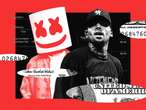Eating from plastic containers may increase risk of heart disease, study shows
- today, 12:49 PM
- fastcompany.com
- 0
Birkenstock, the renowned German footwear brand, posted stronger-than-expected sales for its fiscal first quarter, fueled by strong holiday demand and the growing popularity of its closed-toe clogs.
However, the company’s U.S.-listed shares (NYSE: BIRK) were down about 3% in premarket trading Thursday as of the time of this writing.
Strong demand meets investor skepticism
The company reported quarterly revenue of €361.7 million, exceeding analyst expectations of €356.2 million. However, it maintained its annual margin forecast, as Reuters reported.
The drop in share price is likely related to a cautious outlook on profit margins for fiscal 2025, with investors also concerned about the long-term impact of Birkenstock’s expansion strategy—especially the rising costs associated with new retail locations and manufacturing facilities.
Expansion costs weigh on margins
The footwear brand has been aggressively expanding, particularly in Asia. In October 2024, Birkenstock launched a dedicated e-commerce platform in South Korea and announced plans to open brick-and-mortar stores in the region by spring 2025.
The company’s gross margins fell by 330 basis points in fiscal 2024, as the Wall Street Journal reported, largely due to increased spending on new retail locations and manufacturing facilities, including a new production plant in Pasewalk, Germany.
Investors may be wary of how long these expenditures will continue to pressure profits before yielding meaningful returns.
Market expectations and profit misses
Birkenstock’s revenue forecast for fiscal 2025—between 15% and 17% growth—fell slightly below expectations. Analysts had anticipated a more aggressive outlook, especially given the company’s recent momentum.
Additionally, while sales have been strong, profits have not kept pace. Birkenstock’s earnings report showed that despite higher revenues, net income was lower than analysts had projected. This discrepancy suggests that rising operational costs, supply-chain expenses, and promotional spending may be eating into profitability.
Brand strength vs. market concerns
Birkenstock remains a strong brand with cultural relevance, thanks in part to high-profile collaborations and celebrity endorsements. However, the stock’s decline reflects broader market concerns about whether the company can translate its current sales momentum into sustained long-term profitability.
This isn’t the first time investors have reacted negatively to Birkenstock’s financial performance. In August 2024, the company’s stock plummeted 15% after missing profit estimates. While the latest dip isn’t as severe, it signals continued skepticism about the company’s ability to balance growth with profitability.






No comments